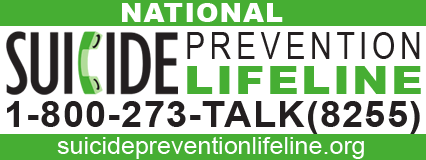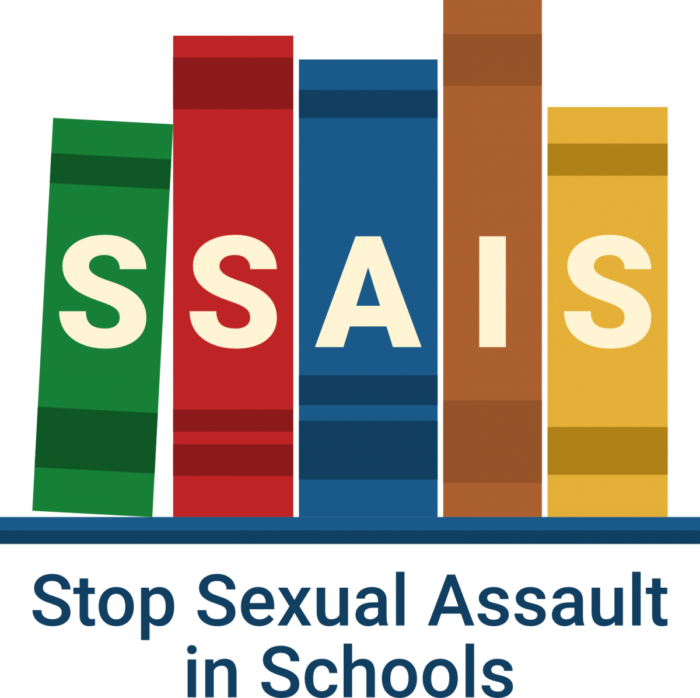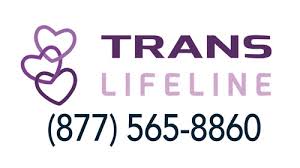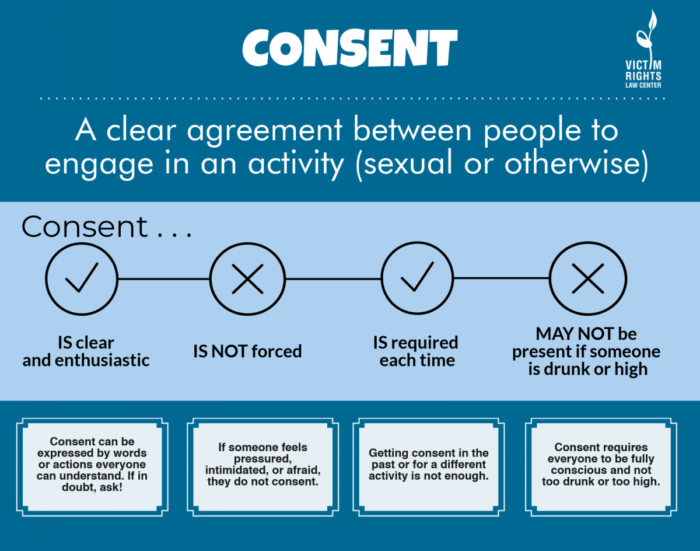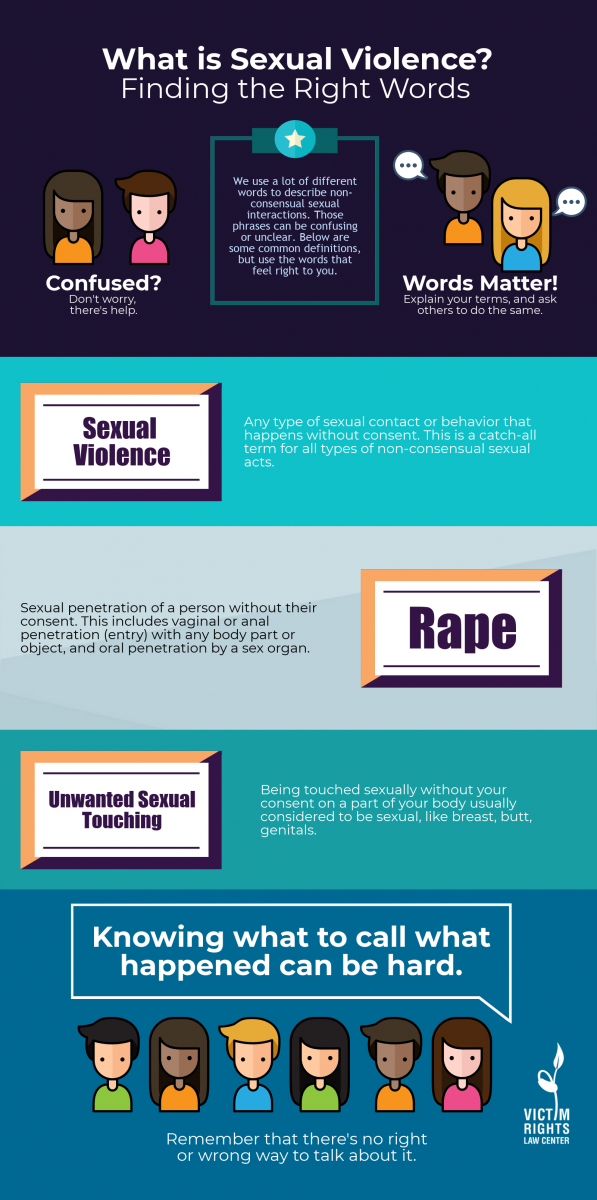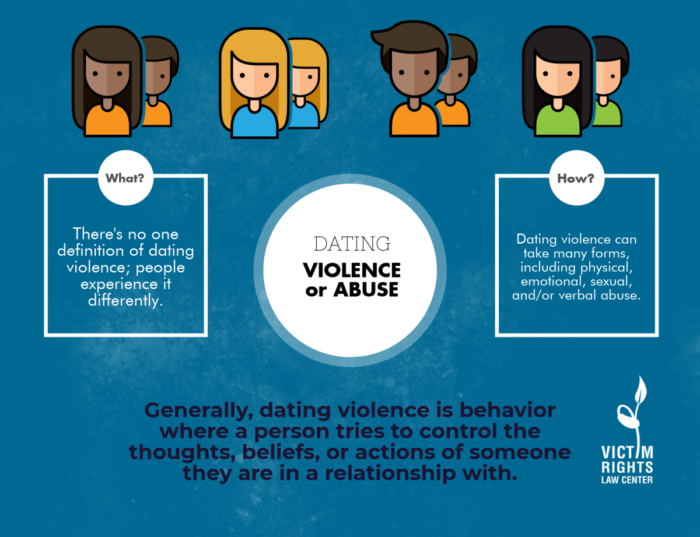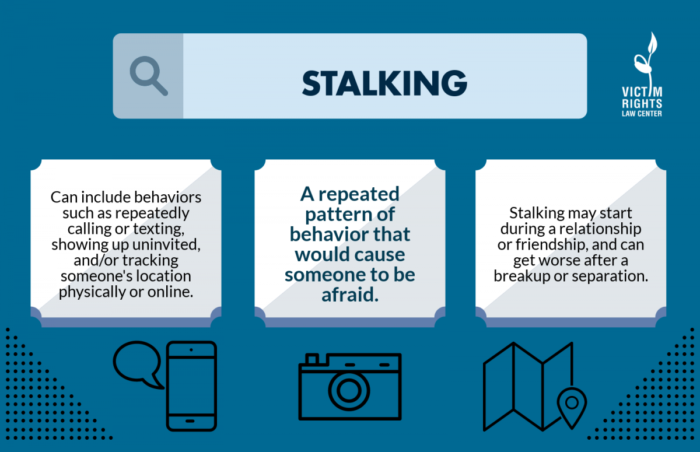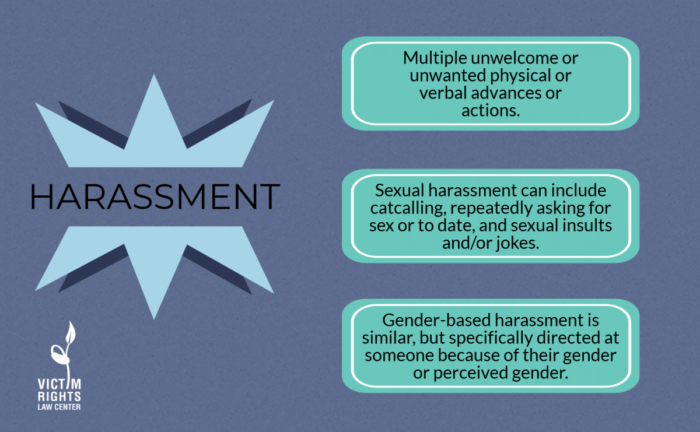K-12 Resources
Note: This page is intended for survivors in the K-12 school system. If you are a student, parent, or guardian who would like more information on ways to help, please click here for our guide, created in collaboration with Surviving in Numbers. If you would like information on ways VRLC can help with general education law in Massachusetts and Oregon, please click here.
How Do I Talk About What I Experienced?
Sexual violence, dating violence, domestic violence, and stalking are a different experience for every survivor. Much of what we know about violence we learn from depictions in the media or from textbooks in school. The violence you experienced may look different than what you’ve seen in those examples, and you may not know what to call your experience. Because no act of violence looks the same and we all experience it differently, we have provided definitions to help you navigate your experience.
Many survivors of violence, especially young survivors, may not know whether to report the violence they experienced, to whom they can report, or what their options are if they do choose to report. Young survivors may also have unique concerns relating to their privacy, safety, school, and more. Each survivor may have a different response to what they experience, and your response is a normal response to something that should not have happened to you.
If you still don’t think that these fully cover your experience, that’s also okay and does not mean that your feelings about it are wrong. Each person responds to violence differently, and these, even when they vary from person to person, are normal responses to things that should not have happened.
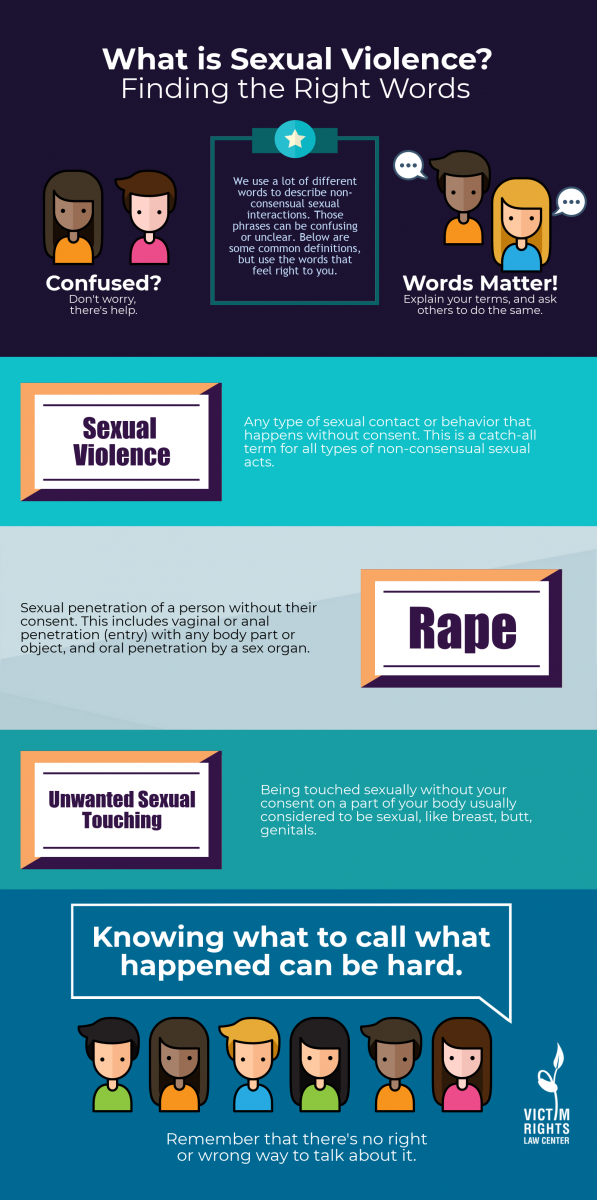
What Do I Do About School?
Experiencing sexual violence at a young age can be devastating, and can impact every area of a person’s life, including their educational trajectory. Sexual violence can also bring up many concerns around issues such as privacy and safety, and as a young survivor (or parent of a young survivor), you may be unsure of where to begin in addressing these concerns.
As a survivor, you have the right to an education free from violence, and an environment in which you are safe and can learn. There are multiple laws that can be useful to consider as you move forward. A few are detailed below:
- The Every Student Succeeds Act (ESSA, formerly No Child Left Behind) – victims of violent crimes must be allowed to transfer schools
- Free and Appropriate Public Education(FAPE) and Section 504 – schools must provide necessary accommodations for disabled students
- Title IX – you have the right to an education without gender-based or sexual discrimination, can choose whether or not to report sexual violence, and will be able to access all services available for victims of sexual violence
You Are Not Alone.
If you’ve experienced sexual violence, dating violence, domestic violence, and/or stalking, it is important that you know you are not alone. Almost half of the survivors of these crimes are under the age of 18.
Are my feelings normal?
How should I feel?
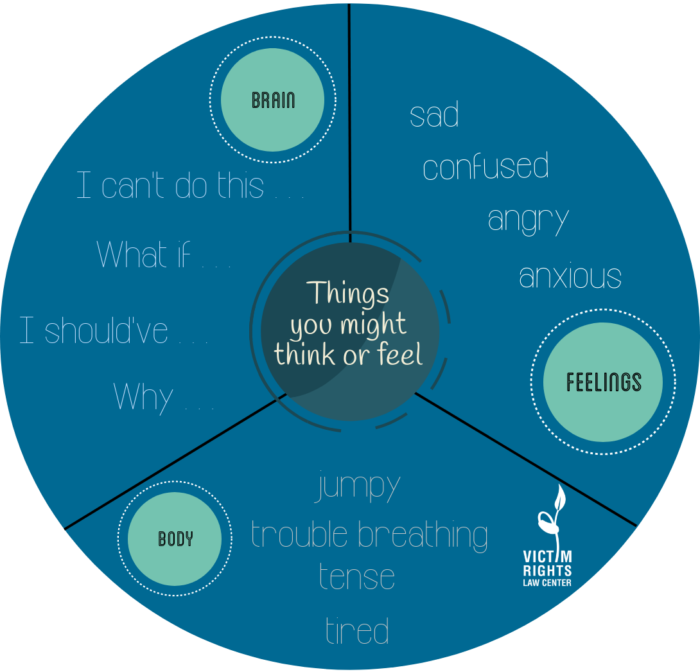
There is no “typical” reaction to any form of sexual violence. Whatever feelings you may be experiencing, it’s likely someone else has felt those, too. Many people experience trauma symptoms, such as heightened anxiety, inability to sleep, feeling sad, etc. Some people want to stay in contact with the person who hurt them. Some people don’t experience any of these things, or they experience something completely different. It’s important to keep in mind that all of these reactions are common as your mind and body try to process what happened. It is also common to have concerns about reporting the violence you have experienced. However, whatever reaction your experiencing may be overwhelming at times, and you can ask for help from your support system, mental health professionals in your area, or the resources at the bottom of this page and located on our “Where Can I Find More Information” page if you feel like you need extra support through this, which many people do. If you’re concerned about talking to any of these people, check our “What If I’m Worried About Telling Someone” page.
None of what you experienced is your fault in any way.



What if I want to tell someone?
While mandatory reporting laws vary by state, please be aware that some of the people you may want to discuss your experiences with could be mandated reporters. Mandated reporters are people required by law to report abuse to your state’s Department of Children and Family Services or other similar agency, and/or to law enforcement in order to keep a variety of people, including minors, safe. Doctors, teachers, and almost anyone who works with minors (generally defined as someone who is under the age of 18) is a mandatory reporter. This doesn’t mean you can’t or shouldn’t talk to any of these people about your experiences – they are there to help you.
If you are worried about mandatory reporting, or what happens if a report is made, you can contact your state coalition for more information on your state’s mandatory reporting laws. You can call without giving any identifying information. You can also ask your coalition for a referral to an anonymous hotline, or any other services available to minors in your area.
Every state and territory has an organization that understands the laws and resources available in your state for sexual violence and domestic violence victims. For a full listing of coalitions by state or territory, click here.
No matter what your gender identity is, you are entitled to the same rights, accommodations and services as anyone else your age. Some survivors who identify as Lesbian, Bisexual, Gay, Queer or Questioning individuals; as a male survivor; a person of color; an immigrant; a person with a disability, etc. may have additional concerns about coming forward to tell someone or report the violence they have experienced. These are normal feelings, and your experience is absolutely valid and real.
School’s Legal Responsibility to Help Survivors Who Report Violence
While a school may tell a survivor of violence to go to the police to report an incident instead of seeking help through the school, schools that receive federal funding are legally required to respond to reports about sexual violence, sexual harassment, dating violence and stalking. Instead of forcing survivors to seek help elsewhere, schools must recognize and act on their legal responsibility to help a survivor in ways law enforcement can’t. Your school is required to help you with academic accommodations if you report struggling with sexual assault, stalking, dating violence, or any of the above situations to your counselor, teacher, or other school administrator. While police can help survivors get orders of protection against a person who hurt you, or investigate the matter and potentially pursue a criminal case against them, police are not intended to provide help with specific actions where schools CAN, such as:
- Help you feel safe in your classes
- Help you get academic assistance (i.e. extra time on assignments or tests, rescheduling assignments, etc.)
- Help you get counseling sessions with a school guidance counselor
- Change bus schedules
- Have a friend or designated person walk you to class
- Prevent the person who hurt you from going to the same extracurricular activities
- Prevent the person who hurt you from eating lunch in the cafeteria at the same time
- Hall pass to seek help from an adult (i.e. guidance counselor, coach, teacher) when experiencing trauma symptoms
- Help with excusing absences from school
- Help with access to locker rooms and bathrooms based on gender identity
- Create safety plans to help reduce contact or interaction with the person who hurt you
Legal Remedies
Title IX
Title IX is a federal law that provides you the right to access the benefits of your education without gender-based or sexual discrimination. Gender-based or sexual discrimination includes sexual violence, domestic violence, dating violence, and stalking.
- You have the right to choose whether or not to report or disclose gender-based violence.
- You have the right to report what happened, whether it occurred on or off campus by a fellow student or campus employee.
- You have the right to be notified of existing counseling, mental health, or other student services for victims of sexual violence, regardless of whether or not you file a disciplinary complaint.
- You have the right to ask for safety measures to be put in place by your school. You and your school can determine what steps to take to protect you, including avoiding contact with the person who hurt you or their friends, or allowing you to change your academic circumstances, etc.
- You have the right to receive school protection from any retaliation that occurs after you report. This may include retaliation by the person who hurt you or their friends, club members, teammates, or more.
- You have the right to an adequate, reliable, and impartial investigation of your complaint by the school.
Every Student Succeeds Act (ESSA)
The Every Student Succeeds Act (ESSA, formerly No Child Left Behind) is a federal law that requires that a victim of a violent crime in or on public school grounds must be allowed to transfer to another public school.
- If there is another public school within the same district, the school must offer you a transfer, but the student may opt not to take it.
- If there is no other public school within the same district, the school is encouraged to work with neighboring districts.
- A student cannot choose a specific alternative school.
- A school is not required to pay transportation costs that result from this transfer.
- The person who hurt you doesn’t have to be convicted of a crime for the survivor to have these rights.
Section 504
Section 504 of the Rehabilitation Act (Section 504) is part of a federal law that prohibits a school that receives federal funding (which includes almost all schools in the country) from discriminating against students with disabilities and ensures that schools provide necessary accommodations for students with disabilities to allow them equal access to their education. A student is eligible for 504 accommodations if they have a physical or mental disability that substantially limits a life activity or activities. A school must have an established policy and procedures related to 504 determinations. Sometimes experiencing sex discrimination such as sexual violence, sexual harassment, gender-based harassment, dating violence, and stalking can cause health problems that can be defined as either short-term or long-term disabilities.
- Entitles eligible children to a free and appropriate education (FAPE)
- An appropriate education is one that is designed to meet the disabled student’s needs as adequately as the needs of non-disabled students are met
- Preference that children be placed in regular classroom setting
- Applies to academic and non-academic programs
IDEA
The Individuals with Disabilities Education Act (IDEA) is a federal law that ensures that eligible students with disabilities receive appropriate services. A student between the ages of 3 and 21 is entitled to special education services if they meet the following criteria:
- The student has a disability
- The student is not making effective progress in school
- The ineffective progress is a result of the student’s disability
- The student requires specially designed instruction or related services in order to make effective progress in school
There is an eligibility determination process, and if determined eligible, the student will receive a written individualized education plan (IEP).
- Entitles eligible students to a free and appropriate education (FAPE)
- Preference that students be placed in regular classroom setting
These laws are your federal rights. You have the right to feel and be safe at school. If you have experienced any of what has been outlined here, you can also choose to access any of the remedies outlined.
Where can I get more information?
Please see our guide, made in collaboration with Surviving in Numbers.

